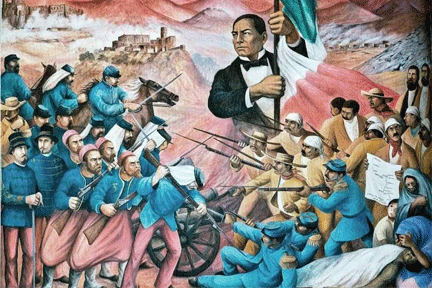Cinco de Mayo’s surprise victory affected both Mexican, US history
News Category: News and General Discussion
-
Published May 3, 2023
A recent poll conducted in the United States by Mexican avocado exporters showed that only 22% of Americans know the true history of Cinco de Mayo. For Mexican Americans, it is a day to celebrate their Mexican heritage. For those who aren’t Mexican — and who often mistakenly think it is Mexico’s Independence Day — it’s a day to imbibe tequila and indulge in guacamole and chips.
But May 5, 1862, had a profound impact on the history of both Mexico and the United States. Cinco de Mayo is a commemoration of the Mexican victory over the French in the 1862 Battle of Puebla during the Franco-Mexican War.
CULTURE
Cinco de Mayo’s surprise victory affected both Mexican, US historySheryl Losser
May 2, 2023Cinco de Mayo celebration in Washington, D.C. This holiday is actually celebrated more in the U.S. than in Mexico, in part because the Battle of Puebla’s victory inspired Mexicans in border states like California and Texas with a sense of nationalism and identity. (dbking/Wikimedia Commons)
16SHARES
A recent poll conducted in the United States by Mexican avocado exporters showed that only 22% of Americans know the true history of Cinco de Mayo. For Mexican Americans, it is a day to celebrate their Mexican heritage. For those who aren’t Mexican — and who often mistakenly think it is Mexico’s Independence Day — it’s a day to imbibe tequila and indulge in guacamole and chips.But May 5, 1862, had a profound impact on the history of both Mexico and the United States. Cinco de Mayo is a commemoration of the Mexican victory over the French in the 1862 Battle of Puebla during the Franco-Mexican War.
In the 1862 Battle of Puebla, Mexican troops were outnumbered and outgunned, yet defeated an elite army. The figure holding the flag is Mexican president at the time, Benito Juárez.
By 1861, Mexican President Benito Juárez’s government was suffering financially. The Mexican-American War (1846–48) and the Reform War (1858–61) — between the Liberals who wanted separation of church and state and the Conservatives who wanted a close bond between the government and the Catholic Church — had nearly bankrupted the country.
To relieve some of the financial strain on the Mexican treasury, Juárez issued a moratorium on the payment of all foreign debts — primarily owed to Great Britain, Spain and France. In response, the three countries met in London and decided to send naval ships to Mexico to force repayment.
Their troops landed in Veracruz in December of 1861. Britain and Spain renegotiated their payment plans and peacefully withdrew, but Emperor Napoleon III of France had other plans. His troops attacked Veracruz and then marched toward Mexico City.
Napoleon III planned to establish an empire in Mexico — what would come to be known as the Second Mexican Empire — that would favor French interests in the region. The First Mexican Empire established in 1821 was ruled by Emperor Augustín de Iturbide. He abdicated his throne in February of 1823 and fled to Europe.
-


Leave a Reply